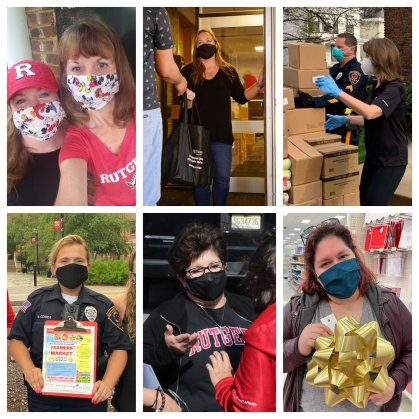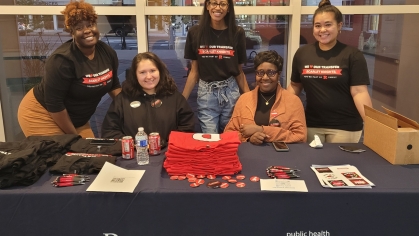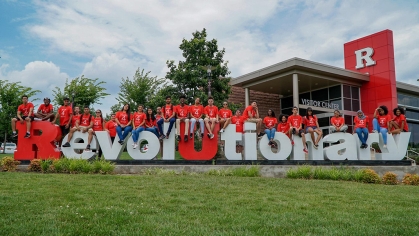Dining Services and the Student Food Pantry Address the Needs of Students During the Pandemic

Throughout the pandemic, Dining Services and the Student Food Pantry played an active and important role in providing students with a basic necessity: food. Using innovative tactics, they figured out how to effectively reach students during the university’s remote learning and hybrid periods.
Dining Services consistently kept at least one location open through the academic year during remote instruction. In order to serve the community more efficiently, they offered online ordering for pickup. Dining Services also prepared and delivered meals to students who were in quarantine and isolation housing.
To uphold health and wellness standards, Dining Services always had two registered dieticians on staff to ensure that all food was balanced while catering to the dietary needs and concerns of most students. During the school year, they participated in a Student Advisory Board that listened to and addressed students' concerns and questions.
The Student Food Pantry addressed the challenges experienced by students living on- and off-campus without meal plans. It remained operational throughout the pandemic, moving to the Graduate Student Lounge to allow for greater social distancing and switching to pre-packed food bags to minimize contact.
Food is a basic need that all students have
Additionally, a mobile food pantry was set up to meet the needs of food-insecure students with difficulty accessing the College Avenue campus. The Pantry also used grants and other forms of financial support to provide free meals to students through community restaurants like King Pita and Tavern on George.
Kerri Willson, the director of Off-Campus Living and Community Partnerships (OCLCP), emphasized the urgency in ensuring food security for students whose access to meals had been interrupted by the pandemic.
“Food is a basic need that all students have,” said Willson. “Keeping the food pantry open addressed and fulfilled a basic need.”
“Access to food was not the only concern during the with our students on-campus or in off-campus housing,” Willson continued. “Through the unfamiliar period of isolation, students were weary, uncertain, and very cautious.”
Both the Student Food Pantry and Dining Services attempted to address the struggles of students through their work.
Because there were thousands of students with meal plans at the start of the pandemic, Dining Services maintained direct contact, interaction, and communication with many students.
“Students were happy and felt a level of security upon seeing a friendly and familiar face on their daily trip to the Dining Hall,” said Mike Samatovicz, a unit manager at Busch Dining Hall.
It came to be recognized by many as an information hub and a place where a sense of normalcy was preserved during the pandemic.”
OCLCP observed students being uncertain with and having trouble when it came to socializing and staying safe. Students also had to deal with the challenges of living off-campus for the first time during an unprecedented pandemic, handling conflicts with roommates, and resolving issues with their landlords.
Willson also emphasized the collaboration between departments in Student Affairs during the worst parts of the pandemic.
“I really appreciate the support I got across the Division, such as volunteer staff helping with the food pantry,” Willson said. “I have never felt so comfortable asking for help, which speaks volumes about people working in the Division."
Financial support from alumni, parents, and friends helps us create the innovative learning opportunities that challenge students to be their best at Rutgers and beyond.
About the Division of Student Affairs at Rutgers–New Brunswick
The Division of Student Affairs is committed to facilitating interactions that promote students' success and their personal and professional development. Learn more about our mission.



